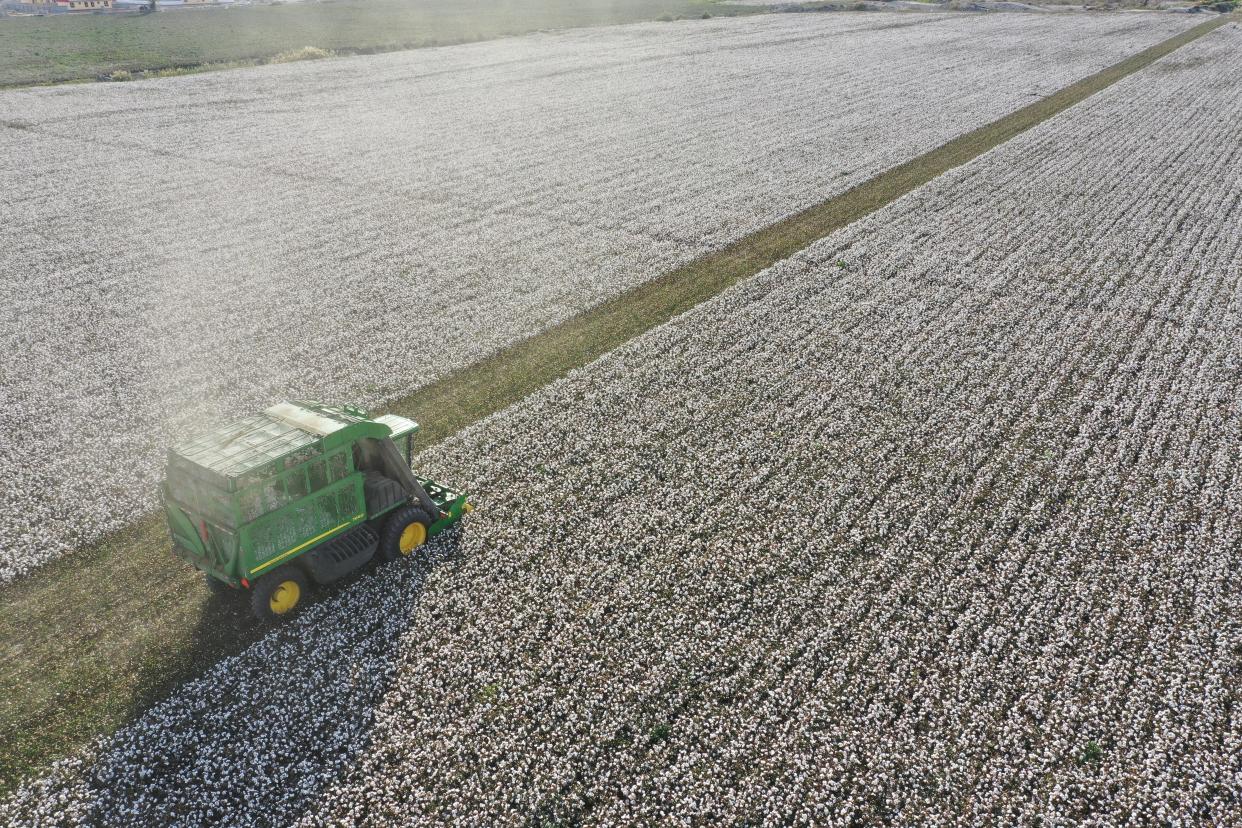U.K. Modern Slavery Act Isn’t Working as Intended, Expert Alleges

The U.K. was the first country in the world to require businesses to report annually on their work to prevent and address modern slavery, yet the legislation is falling short in current times.
Its status matters for global collaboration on human rights abuses. “I don’t think that the potential of the Modern Slavery Act has ever been brought to a professional element of trying it in the courts and then maybe taking it to appeals court — [to] set the standards,” said Kevin Hyland OBE, the former first independent modern antislavery commissioner for the U.K.
More from WWD
Having served decades in the London Metropolitan Police force on related units, Hyland was appointed to the role in 2014. He held the position until May 2018, when he stepped down because he felt the independence of the role threatened.
Amid mounting evidence of forced labor, affecting Uighur groups in Xinjiang, the U.K. government is being called on to strengthen its modern antislavery requirements, including its Modern Slavery Act of 2015.
The law, as it relates to corporations, puts the precedence on supply chain transparency, barring exploitation of any kind, while also meaning to upend abuse of authority.
“The Modern Slavery Act, for example, has the term ‘knows or ought to know’ in its body, and I know that legislation has never been tested in that term. ‘What does knows or ought to know mean?’ Should a company, should a chief executive officer, should a director ‘ought to know’ what is going on in their business, particularly when it gets closer to them? And I would say — they should know,” Hyland said.
In the U.K., section 54 of the Modern Slavery Act 2015 requires companies (with revenue above 36 million pounds) to self-report what they’re doing with regard to modern slavery in their supply chains. In 2019, the Business & Human Rights Resource Centre found that a paltry 20 percent of these annual statements met the Act’s minimum requirements.
Hyland called corporate statements on modern slavery “superficial,” very “cut and paste” and sometimes “nothing” at all (saying one’s business is doing nothing also suffices in reporting).
Calling on instances with fast-fashion retailer Boohoo, Hyland said: “Sometimes when brands — not just in fashion but elsewhere — say they ‘didn’t know,’ and they’re ‘horrified,’ then that seems to be enough, and that seems to be where it stops for this multimillion-, multibillion-pound company, and…I am shocked that that is acceptable,” said Hyland, adding that “this is a crime that holds life in prison.”
Many stakeholders agree that businesses not knowing what’s going on in their supply chains is now entirely unacceptable.
As recently as Tuesday, committees like the U.K.’s Business, Energy and Industrial Strategy, published a report challenging businesses to “ensure forced labor plays no part in their supply chains” calling fashion, retail, media and tech sectors with large U.K. footprints “complicit” to forced labor in the Xinjiang region. Among the companies that spoke up for how their supply chain efforts are combatting modern slavery were Boohoo, H&M, TikTok, The North Face and Nike — showing the issue is one being openly discussed by global companies.
A ‘Watershed Moment’
In this year alone, sustainable fashion has been relentless in its hope to shape policy.
Hyland called the attention surrounding Xinjiang a “watershed moment in some ways,” as complacency has persisted over human trafficking and forced labor for the past 70 to 80 years.
“What we’ve done — the business sector — is we haven’t really been good at realizing and understanding who are the good guys and who are the bad guys, and that may sound very basic, but actually, we do need to draw a line on this; You’re either totally in it for stopping this, or you’re just playing lip service,” he said.
Referencing international actions, Hyland added: “I think we need to go one step further on this. And countries like Germany, and around the European Union, are looking at legislation on this around human rights protections including forced labor and also looking at environmental measures as well. The first sanction, clearly, is that you can’t trade in a country or your product can’t be sold if you make it within a country if it’s showing there’s forced labor or environmental issues,” he explained, referencing the U.S.’ enforcement of its Tariff Act.
“I’ve been saying this for a long time, I think we need to get to the point where there is the sanction…whereby any product that is made by the hands of people in forced labor — even if that’s unwittingly to the company, or willful blindness or knowingly — any profit should be calculated and taken. We should just say there is no way to profit from forced labor or human trafficking” said Hyland, reaffirming that the Act needs to be used properly.
Taking the stance of labor rights groups, Hyland emphasized “if they can’t run a business that is not free of exploitation and modern slavery, then simply, they can’t run a business.”
For More, See:
Did Xinjiang Cotton Crisis Up Stakes for Traceability?
Sign up for WWD's Newsletter. For the latest news, follow us on Twitter, Facebook, and Instagram.

